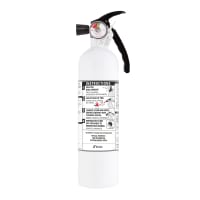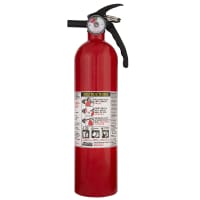Quick Facts:
-
Cooking is the leading cause of home fires and injuries in the United States, and the third leading cause of home fire deaths. (NFPA)
-
According to the National Fire Protection Association (NFPA), from 2014 to 2018, U.S. fire departments responded to an average of 172,900 home fires involving cooking activities each year. These fires caused an average of 550 civilian deaths, 4,820 reported civilian fire injuries, and more than $1 billion in direct property damage per year.
-
Ranges accounted for the largest share (61%) of home cooking fires. (NFPA)
-
The leading cause of cooking fires and casualties is unattended cooking.
Make Fire Safety a Priority
Preventing cooking fires can be relatively simple. Here are ideas to make your kitchen safer:
-
Keep cooking areas free of combustible materials, such as potholders, packaging, and paper towels. Don't wear loose clothing that can dangle onto a burner and catch fire.
-
Don't leave food unattended while it cooks.
-
Don’t consume alcohol while cooking. Being even moderately impaired may inhibit response time if a fire breaks out.
-
Keep a kitchen fire extinguisher, such as Kidde’s 711A Kitchen unit, mounted on the inside of a kitchen cabinet. Kidde’s Kitchen Fire Extinguisher is the only one UL-listed for residential cooking equipment, and its non-corrosive, non-toxic agent offers safe and easy clean up.
-
Read the instructions and know how to use your extinguisher before a fire breaks out. Check the pressure gauge monthly to ensure it’s charged and ready to use.
-
Only use a fire extinguisher if the fire is small and self-contained. Be sure to notify the fire department before extinguishing the fire.
-
Keep a list of emergency numbers close by.
-
Keep children and pets away from cooking areas by creating a three-foot "safe zone" around the stove.
-
Turn pot handles inward to prevent spills.
-
Only use cooking appliances approved by a third-party independent testing laboratory, such as Underwriters Laboratories (UL).
-
Keep cooking appliances clean to prevent grease build-up, which can ignite if heated directly.
-
Never pour water onto a cooking oil fire.
-
If there is an oven fire, turn off the heat and keep the door closed to prevent the flames from escaping.
-
Never put metal objects into a microwave. If a microwave fire occurs, keep the door closed and unplug the unit immediately.
-
Develop and practice an escape plan with your entire family. Plan two exit routes from each room, including the kitchen. Practice your escape plan at different times of the day and specify a meeting place outside.
For help developing a fire escape plan, go to www.nfpa.org






